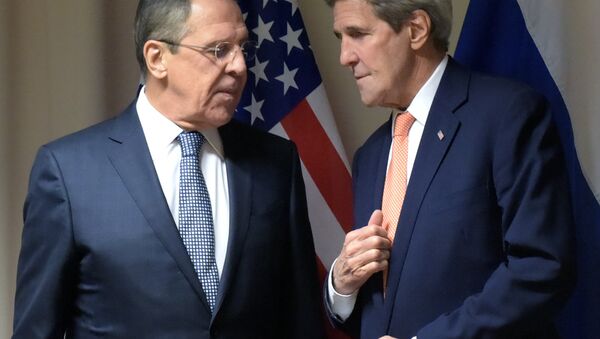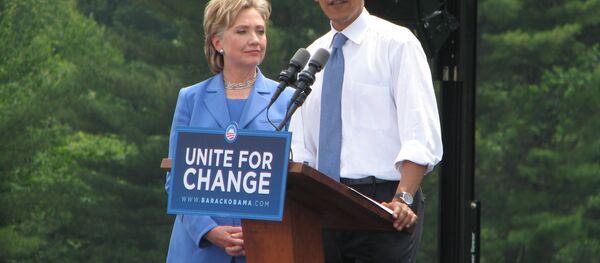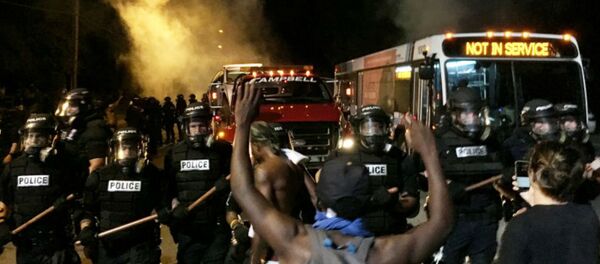The breakthrough Syrian ceasefire deal brokered between the United States and Russia calling for the two-parties to coordinate airstrikes collapsed this week following US-led airstrikes against the Syrian Army that killed 62 and over 300 ceasefire violations by the so-called "moderate" rebels supported by the United States who have openly banded together with Al-Nusra Front and who loudly refused to comply with the terms of the ceasefire agreement.
The second largest rebel group, Ahrar al-Sham provided a statement in the hours before the ceasefire was implemented signaling that the group would neither participate in the ceasefire nor could they disband from Al-Nusra Front because the two groups were too deeply intertwined. That position, held almost unanimously among the US-backed anti-Assad rebels, traces in part to Al-Nusra’s success in leading the effort to break the Syrian government siege of Aleppo in early August.
That situation, along with accusations by the West that either Russia or Syria attack a UN aid convoy following the attack against the Syrian Army, which Moscow vehemently denies, has left the hopes for peace in the war-torn country in tatters with fighting now escalating as the Assad government looks to beat back opposition forces who used the ceasefire to bolster their forces.
"If everything again boils down to asking Russia’s and Syria’s Air Forces to take unilateral steps—such as, ‘Give us another three- or four-day pause and after that we will persuade all opposition groups that this is serious and that they must cut ties with Al-Nusra Front’ – such talk will not be taken seriously by us anymore," said Russian Foreign Minister Sergey Lavrov.
Instead, Lavrov explained that "the revival of the ceasefire is possible exclusively on a collective basis" and that if the US-led coalition fails to provide proof that they have "a sincere intention" to disassociate terrorists from the "moderate" rebels then Russia’s "suspicions that this all is being done to take the heat off Al-Nusra Front will strengthen."
The Russian Foreign Minister also blasted the United States once more for the attack in Deir ez-Zor that shredded the high hopes that the ceasefire would hold saying it is "very hard to believe that reconnaissance officers of the US-founded coalition that is fighting Islamic State (Daesh) on the whole Syrian territory could forget about who is located where."
"The situation in Deir ez-Zor, contrary to the situation in Aleppo, where the line of contact is constantly changing, has been stable over two years already. The Syrian troops have been besieged by the Islamic State (Daesh) there," continued Lavrov expressing that it was strange that the US-led coalition decided for the first time to try to aid the Syrian Army in the region at the time of the “inadvertent” strike.
The Russian Foreign Minister further expressed his dismay that, whether or not it was the intent, the 48-hour and 72-hour temporary truces that have been the precondition of ceasefire agreements have been "used to back up the jihadists, including, Al-Nusra Front fighters, with manpower, food and weapons supplies."




